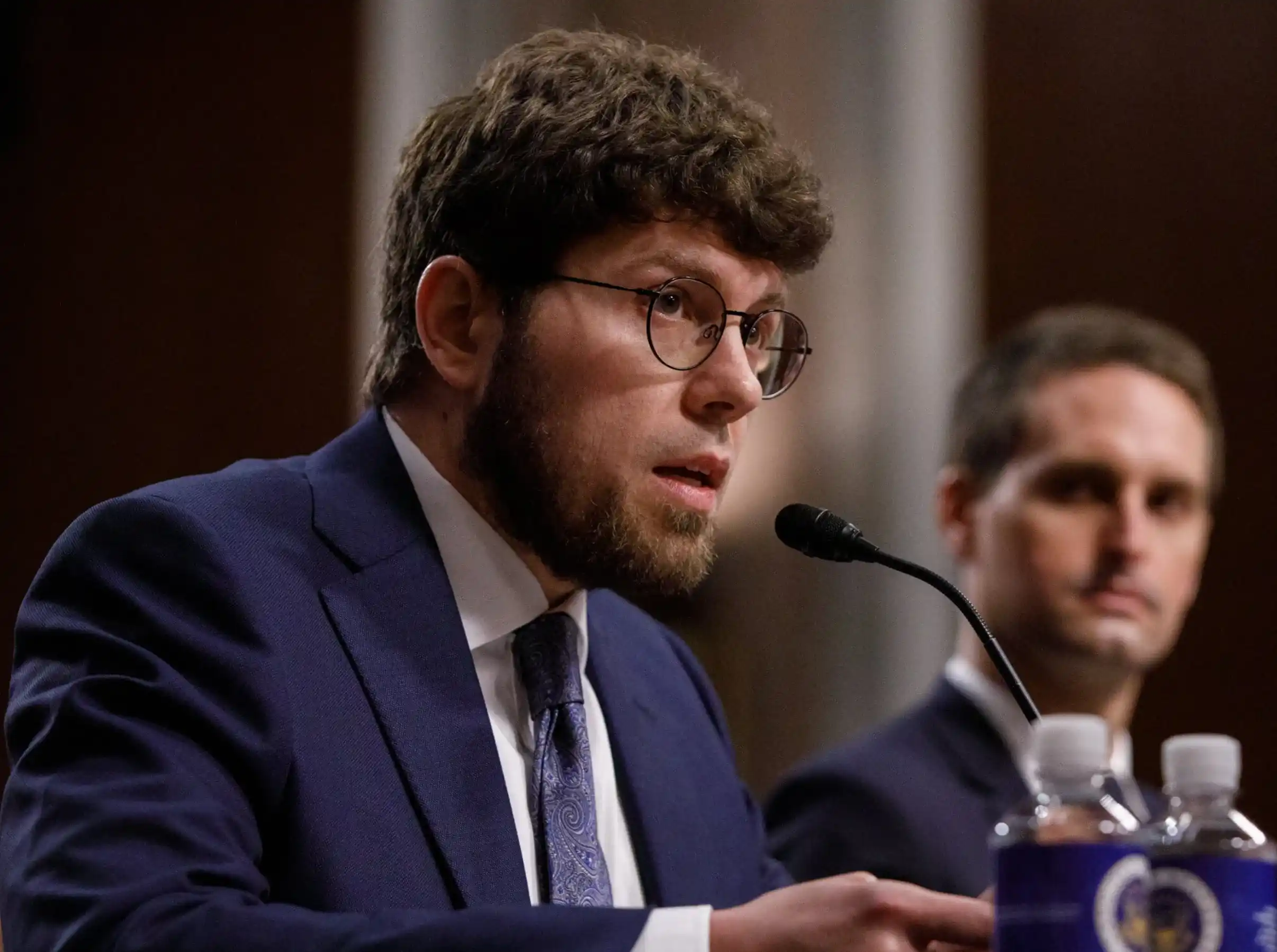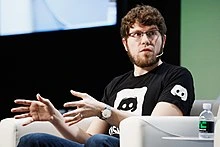Discord's value has skyrocketed remarkably since 2015. The communication platform grew from a small startup to reach 350 million registered users with a massive $15 billion valuation by 2022.
The platform's ownership structure reveals an fascinating evolution from startup to tech giant. Most users recognize Discord as their preferred communication tool, yet the platform's actual ownership and control remain less understood. Major stakeholders like Sony and Tencent, along with founder Jason Citron, continue to shape Discord's strategic direction and future growth.
Discord's Journey from Startup to $15 Billion

Jason Citron started his entrepreneurial success in mobile gaming. He sold OpenFeint, his social gaming platform, for $104 million in 2011. He then created Hammer & Chisel, a game development studio that created innovative gaming experiences.
The founding story
Discord came from an unexpected place - a gaming project that didn't work out. Citron and co-founder Stanislav Vishnevskiy launched Fates Forever in 2014, a tablet-based multiplayer battle arena game that struggled to find players. The team discovered a problem during the game's development: gamers found existing voice chat solutions clunky and slow.
This discovery changed everything. The team turned their game's communication feature into its own product. They let go of their game developers and launched Discord in May 2015.
Key growth milestones
Discord grew through a smart strategy. The team shared their product on gaming subreddits, especially in Final Fantasy XIV discussions. This community-based approach worked well as gamers quickly adopted the platform because of its better voice and text features.
The platform grew in clear stages:
- Discord reached 3 million users by January 2016, adding 1 million users each month
- Users grew to 11 million by July 2016
- The platform had almost 90 million users by 2017
- Monthly active users jumped from 56 million in 2019 to 150 million by 2021
The COVID-19 pandemic sped up Discord's growth substantially. User numbers rose 47% between February and July 2020. The company expanded beyond gaming during this time with their new tagline "Your place to talk".
Current valuation breakdown
Discord's financial success shows its impressive rise. The funding story reveals steady growth:
- YouWeb's 9+ incubator, Benchmark capital and Tencent provided the first investments
- The company raised $20 million in January 2016
- A $150 million funding round valued Discord at $2 billion in December 2018
- The valuation reached $7 billion in 2020
- The company now stands at $15 billion, showing a 650% increase in the last decade
Revenue growth matches this success. Discord made $130 million in 2020, and their annual recurring revenue hit $600 million by late 2023. Discord Nitro, their premium subscription service, drives this growth instead of ads.
Discord puts users first before quick profits. The company quickly switched to community features when their gaming marketplace didn't succeed. This user-focused approach helps them stay ahead and keeps their valuation growing.

Who Controls Discord Today?
Discord Inc. remains privately owned today. The company's founding team and institutional investors make key operational and strategic decisions.
The founding team's stake
Discord's co-founders Jason Citron and Stanislav Vishnevskiy are the main stakeholders. Citron leads as CEO while Vishnevskiy serves as CTO. Each holds equity worth more than $350 million. Their leadership helps Discord stay true to its original goal - building an intuitive communication platform.
Microsoft offered $10 billion to acquire Discord, but the founders chose to stay independent. This choice shows their dedication to shape Discord's future based on their long-term plans.
Major institutional investors
Several prominent investors have helped Discord reach its $15 billion valuation. The key stakeholders are:
Top-tier Investment Firms:
- Dragoneer Investment Group
- Fidelity Investments
- Franklin Templeton
- Baillie Gifford
- Coatue Management
Strategic Technology Partners:
- 🔗 Sony PlayStation x Discord Partnership
- 🔗 Tencent Investment Details - Reuters
Venture Capital Powerhouses:
- Index Ventures
- Benchmark Capital
- Accel
- Spark Capital
- FirstMark Capital
Discord's funding path features strategic investment rounds. The Series H funding in September 2021 stands out as the biggest round, led by Dragoneer Investment Group. Baillie Gifford, Coatue Management, Fidelity Investments, and Franklin Templeton joined this round. Sony Interactive Entertainment made a strategic investment too.
Discord has grown beyond its gaming roots, which its investor base reflects. Gaming-focused investors backed the platform early on. YouWeb's 9+ incubator provided initial support, followed by Benchmark Capital and Tencent.
Discord's private status means exact ownership percentages aren't public. The investment structure balances founder control with institutional expertise. This setup helps Discord:
- Stay independent in operations
- Access strategic collaborations
- Get growth capital
- Keep users first
Discord stands out among communication platforms because of its private ownership. Many competitors went public or sold to corporations. Private ownership lets Discord make flexible decisions and plan long-term without pressure from quarterly reports or shareholder demands.
Sony and Tencent's strategic investments give Discord valuable industry connections and technical expertise. These partnerships help expand Discord's reach and improve its services across markets and user groups.
Inside Discord's Ownership Structure
Discord's $15 billion valuation stems from a well-planned governance system that balances founder control with institutional oversight. The company keeps strict control over its operations and strategic direction.
Board composition
Discord's board of directors expanded with seasoned executives from major tech companies. Leslie Kilgore, Netflix's former chief marketing officer, and Amrita Ahuja, Block's chief financial officer, now provide strategic guidance to the board. Their addition brings valuable experience in digital subscriptions and financial operations to Discord's leadership team.
The board shows Discord's dedication to building a world-class company. Kilgore helped grow Netflix's user base from 100,000 to over 26 million subscribers, which makes her expertise invaluable. Ahuja's role as CFO at both Block and Activision Blizzard adds vital gaming industry insight to the board's collective knowledge.
Voting rights distribution
Discord guards its voting rights structure closely as a private entity. The company uses a traditional corporate hierarchy where the board must approve major decisions. CEO Jason Citron, the largest shareholder, wields substantial voting power in steering the company's direction.
The founding team holds the majority of voting rights:
- Jason Citron and Stanislav Vishnevskiy control the majority
- Institutional investors have minority voting rights
- Board members shape strategic decisions
This setup preserves Discord's original vision and user-first approach despite external investment pressures.
Decision-making process
Discord uses a layered decision-making system that blends centralized control with shared input. The process follows these key principles:
- Strategic Decisions: The board and founders must agree on major strategic choices. This includes handling offers like Microsoft's $10 billion bid 🔗 The Wall Street Journal - Microsoft’s Offer for Discord .
- Operational Governance: Teams have clear responsibilities in daily operations. This creates efficient decision-making and platform consistency.
- Community Input: The leadership team makes final decisions while taking user feedback into account. This keeps the platform responsive to user needs without losing focus.
The decision structure emphasizes:
- Well-defined processes
- Open communication channels
- Quick execution with careful evaluation
- Market adaptability
Discord's governance model works remarkably well. The company takes a systematic approach to major platform changes by looking at:
- Technical feasibility
- User impact assessment
- Resource allocation
- Implementation timeline
- Risk evaluation
This adaptable approach helps Discord grow rapidly while staying true to its values. The company makes bold moves like turning down acquisition offers or changing business strategies, which proves its governance structure works.
Discord's ownership structure shapes how products develop and communities engage. This framework helps Discord accept new ideas while maintaining stability, which lets the platform evolve without losing its user-focused identity.
How Discord's Owners Shape Its Future

Jason Citron and Stanislav Vishnevskiy, Discord's co-founders, shape the platform's future through smart product decisions and carefully chosen alliances. Their approach to growth puts user experience ahead of quick financial gains.
Product development control
The founders keep tight control over product development with a user-focused philosophy. Jason Citron's role as CEO includes personal reviews of new feature proposals. He makes sure these features help Discord's everyday users, not just business growth. This comes from his deep knowledge of the platform's main audience.
Discord's development strategy focuses on:
- Building simple features first before adding complexity
- Making existing workflows better instead of creating new ones
- Developing core tools that other developers can build upon
Product teams work with specific user groups rather than feature areas. This gives them a better understanding of how people use Discord. The AutoMod content moderation system shows this approach well. The team studied how server administrators managed content and added features to make their existing keyword lists work smoothly.
Discord's core features work as building blocks for its larger ecosystem. This has helped create a strong developer community. More than 500,000 apps now improve server customization, gaming experiences, and community safety.
Strategic partnerships
Discord chooses partners who can improve user experience through meaningful teamwork. The platform actively looks for profitable co-marketing and affiliate partnerships in gaming, consumer tech, and digital media.
Key partnership requirements include:
- Matching Discord's values and policies
- Steadfast dedication to diversity, equity, and inclusion
- Proven ethical business practices
- Positive effects on user communities
These partnerships have brought excellent results. Through alliances with content creators, game developers, and major brands, Discord has created new ways for communities to grow. These partnerships offer:
- Community Monetization: Partners earn money through donations and tips, which creates a self-sustaining ecosystem
- Feature Enhancement: Working with Sony and Microsoft has added new capabilities to Discord
- Market Expansion: Teams with esports groups and gaming brands have brought in new users
Discord keeps improving its partnership program. Premium App Subscriptions now let developers earn money directly through the platform. The company's Ecosystem Fund supports developers, start-ups, and partners who bring new features to Discord.
The founders' influence reaches beyond business choices to Discord's technical design. The platform's API and developer tools show their commitment to openness. Partners can create unique experiences while Discord retains control of its core values. This mix of freedom and oversight keeps Discord innovative while staying true to its original principles.



Comments (0)